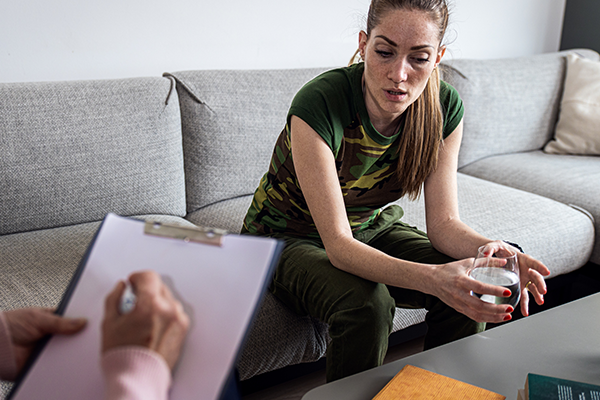
Treatment:Medications for Opioid Use Disorder
- Get Help
- Medications for Opioid Use Disorder
What is MOUD?
Medications for Opioid Use Disorder (MOUD) are evidence-based treatments that use FDA-approved medications to help manage opioid use disorder. These medications work by reducing cravings and withdrawal symptoms, making it easier for people to engage in recovery. MOUD is a crucial component of a comprehensive treatment plan that includes counseling and behavioral therapies.
How MOUD Can Help Opioid Use Disorder
MOUD can significantly improve the chances of long-term recovery. Here’s how it helps:
- Reduces Cravings and Withdrawal: Medications like methadone, buprenorphine and naltrexone help minimize cravings and withdrawal symptoms.
- Improves Retention in Treatment: People using MOUD are more likely to stay in treatment compared to those not using medication.
- Recovery Management: By stabilizing brain chemistry, MOUD helps people maintain their recovery.
- Improves Overall Health: MOUD can lead to better physical and mental health outcomes, helping individuals regain control of their lives.
Myths About MOUD
Fact: Medications for OUD don’t get a person high. Instead, they work to block cravings and normalize brain chemistry. When taken as prescribed by a provider, MOUD is safe and effective.
Fact: There are many paths to recovery. MOUD can be a central component to long-term success.
Fact: Evidence has shown medically supervised withdrawal is safer than an abstinence-only approach. MOUD is endorsed by many entities including the American Medical Association.
Fact: As with any prescription medication, there is a potential risk for side effects. Your medical provider will discuss medical conditions, side effects and risks before treatment begins.
Fact: To prescribe MOUD, medical providers are required to complete specialized training and register through the DEA. Treatment programs must follow strict federal regulations.
Two of the drugs used to treat OUD – Buprenorphine and Naltrexone – can be taken in pill form or monthly by sustained-release injection. MOUD does not require a daily trip to the clinic.
Counseling
While MOUD is effective, it works best when combined with counseling and behavioral therapies. Counseling provides a space to address the underlying causes of addiction, develop coping strategies and build a support network. Individual and group therapy sessions can help patients:
- Understand their substance use
- Learn healthy coping mechanisms
- Develop a strong support system
- Set and achieve personal goals

Let’s Be Clear:
MOUD is not replacing one drug for another. It’s a powerful tool in the fight against opioid use disorder.
Frequently Asked Questions
The most common medications are methadone, buprenorphine and naltrexone.
Yes, MOUD medications are FDA-approved and have been proven safe and effective when used as prescribed.
Treatment duration varies depending on individual needs and should be discussed with your prescriber.
Yes, certain medications like buprenorphine can be started while still using opioids under medical supervision.
MOUD, when used as prescribed, stabilizes brain chemistry. These long-acting medications do not provide euphoric effects that individuals experience when they misuse opioids. Let’s be clear: MOUD is a safe, effective treatment for opioid use disorder.
Finding the right method of treatment is the first step toward recovery. Three agencies have partnered with the Department of Social Services to ensure expanded access to MOUD treatment in South Dakota.